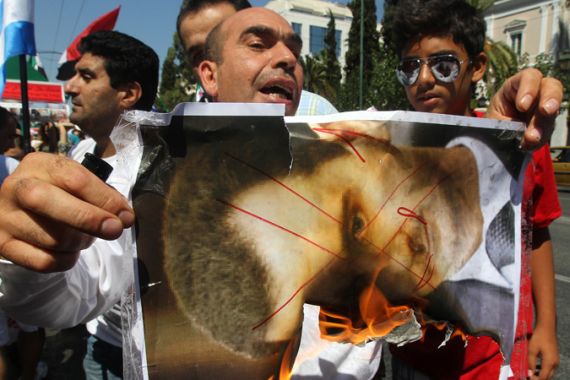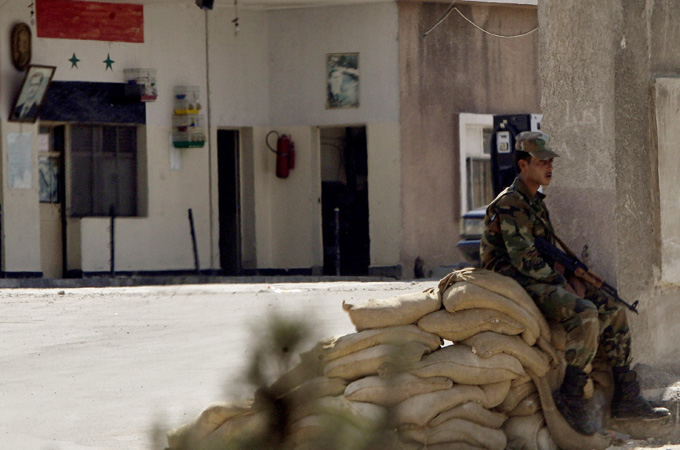US sanctions target three Syrian officials
Foreign minister among those hit by new measure amid continuing security crackdown on protesters.

 |
| Security forces have set up checkpoints and barricades in towns and cities across the country [AFP] |
The United States has frozen the US assets of Syrian Foreign Minister Walid al-Muallem and two other senior Syrian officials and banned business transactions with them in response to Syria’s increasingly violent crackdown against anti-government protesters.
The other two officials targeted by the latest sanctions were Syria’s ambassador to Lebanon Ali Abdul Karim Ali and President Bashar al-Assad’s adviser Bouthaina Shaaban.
“We are bringing additional pressure to bear today directly on three senior Assad regime officials who are principle defenders of the regime’s activities,” David Cohen, Treasury’s Under Secretary for Terrorism and Financial Intelligence, said in a statement on Tuesday.
“This puts increased amount of pressure on those surrounding President Assad,” Rosalind Jordan, Al Jazeera’s correspondent in Washington, said.
“All US citizens are now banned from conducting any transactions with these three [people],” she said.
The new sanctions follow an August 18 order signed by President Barack Obama that froze all Syrian state assets inside the United States and forbade investment and exports to the country.
It also banned imports of oil and gas from Syria, aiming to hurt a key revenue stream for the Assad regime.
The attacks on protesters “constitute an unusual and extraordinary threat to the national security, foreign policy and economy of the United States,” the presidential order said.
Violence continues
The latest round of sanctions came as Syrian security forces reportedly shot dead at least seven protesters on the first day of the Muslim Eid al-Fitr holiday.
Protests erupted in many towns and cities after Muslims performed morning Eid prayers marking the end of Ramadan.
|
|
The Local Co-ordination Committees (LCC) activist network said six of the deaths occurred in the southern province of Deraa and one in Homs.
Syrian security forces reportedly also opened fire on protesters in the town of Deir ez-Zor.
LCC said a “huge” protest was formed as worshippers emerged from the al-Omari mosque in Deraa and marched to the town’s cemetery. Many Muslims traditionally visit graves on the first day of Eid.
Large demonstrations were also reported in cities including Idlib, Hama and Homs, and in Damascus suburbs.
A day earlier, security forces killed at least eight people and wounded dozens in raids across the country, according to opposition activists.
Detention deaths
Meanwhile, a human rights group said it believed that at least 88 people, 10 of them children, have died in detention in Syria during five months of anti-government protests.
Some of the victims were as young as 13, Amnesty International said on Tuesday. It said that in recent years the annual number of such deaths has been about five.
“These deaths behind bars are reaching massive proportions, and appear to be an extension of the same brutal disdain for life that we are seeing daily on the streets of Syria,” said Neil Sammonds, Amnesty’s researcher on Syria.
The victims, all men or boys, were arrested after mass protests began in March. All the victims are believed to have been detained because they were suspected of being involved in the protests, Amnesty said in a report.
In at least 52 of the cases, there was evidence that torture or ill-treatment caused or contributed to the deaths, the report said.
Amnesty said it has compiled the names of more than 1,800 people reported killed since pro-reform protests began. Thousands of others have been arrested, with many held incommunicado at unknown locations, the group said.